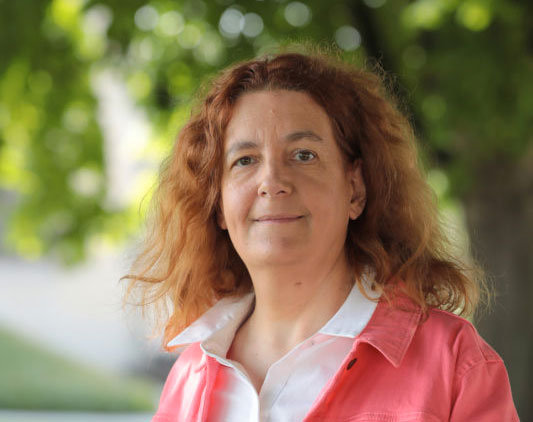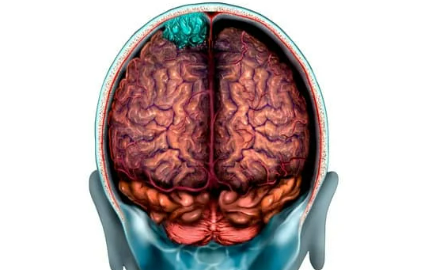Testimonial: Emmanuelle 55 years old, 5 meningiomes- Androcur, luteran and endometriosis
Endometriosis & meningiomas testimony on the Carenity site here
@emma14
5 meningiomes- Androcur, luteran and endometriosis
Hello and thank you for agreeing to testify. Can you introduce yourself in a few lines?
I am a 55 -year -old woman, with two children aged 31 and 24. I worked at the Banque de France, as a financial analyst. I worked in Paris, Vernon, Poitiers, Caen.
When did the first symptoms of endometriosis appear? Which ones?
I have always had painful and abundant rules. I remember that I had to change at high school of periodic towels sometimes every hour so every course! I thought it was normal. Then, I had a fairly young child, and a few false layers, before having a second, both by Cesarean. After the second child, pain during the rules accentuated, and then the pains became permanent.
Have you taken a long time before you are diagnosed?
The diagnosis took 8 years, that is to say the delay between the moment when I said that something was not normal, that I suffered too much and the moment when the word endometriosis was said by a doctor.
I had research on my side, but when I said to doctors: "Endometriosis maybe?" ", They replied," No, you had children, so that can't be that ".
I even went to see a surgeon in my city, saying to him "Open up his stomach, there is something that does not go in there", and he had replied: "But madam, we do not open the belly of people like that!" ». It is actually an occupational doctor, a woman, who seeing me going more and more in years in years pronounced for the first time the word "endometriosis".
How did you react to the diagnosis? Have you been supported by your loved ones?
I was relieved to know what I had. It was not psychological as I was told (my attending physician had sent me to see a psychiatrist). How many times have I heard: "Ah women, with their bellies, always something that is wrong".
What treatments have you followed and followed against endometriosis? Are they effective?
I was operated on and then I had a lot of treatments: Enantone, Decapeptyl, then Androcur, Luteran. They were effective because they were continuously taken, they avoided bleeding. Sometimes bleeding returned, despite the continuous intake. And so we were redoing Decapeptyl or Enantone bites, which are fairly violent treatments. But residual pains are still there, linked to the fact that the operation has not removed all the foci of endometriosis. They are however much more bearable than what I have known before the operation, where for years, I took anti -inflammatory drugs daily to support the pain and be able to work and take care of my children.
On a daily basis, how do you manage endometriosis?
I no longer take any medication, because in pre-menopause, I have fewer bleeding. And I can't take any hormonal treatment anymore. I manage my pain by hypnosis most often. I was helped in that by an anesthesiologist, who gave me the user manual of hypnosis in the case of pain. And although not believing in it at first, it doesn't work too bad.
What were the first symptoms of meningiomas?
The first symptoms were fatigue and headache. As endometriosis generates a lot of fatigue, I have not seen that this fatigue was different.
Then, I had problems of concentration, loss of force in one leg, the loss of sensitivity to the right of the mouth, the difficulty in speaking (put on the account of fatigue), a bunch of neurological signs that the doctor did not decrypt for years.
My right hand had to be paralyzed so that in the end the brain MRI was requested.
How did you know that it was a meningioma? Have you been diagnosed with another pathology wrongly?
I knew in brain MRI, in 2017. 5 meningiomas and an adenoma in the pituitary gland, all from the treatments taken to master endometriosis (and not even to cure it). So I was given potentially fatal treatments for a disease that is not deadly, even if it is very disabling.
Certainly a drug is always a profit/risk, but we appreciate this balance better if we know the risks!
Before, I had been cataloged depressed, making insufficient sport (the treatments made me take 30 kgs), hence the weakness of my leg! We also thought of Lyme disease, and as tests for this disease are not reliable, I was treated for this disease.
Which doctor finally made the diagnosis? What exams have you made?
The attending physician, with brain MRI.
How do you take care today? How are you ?
I was operated on from the biggest meningioma that made me lose the floor and paralyzed me on the right side (not to mention other problems such as respiratory breaks, food miscaps, etc.) It has been operated for two years, and I recovered my mobility but not entirely my word as before. I tire very quickly, I have vertigo, absences, headaches, at the level of the skull which was opened and also for the other 4 meningiomas that I have left.
I feel lucky to get out of it because people died of this operation
Androcrur is a drug prescribed against endometriosis which increases the risk of brain tumors. If you took it (or if not, what other medication?) Do you think it is responsible for your meningiomas?
He is undoubtedly responsible because the analysis of the removed tumor shows progesterone receptors. So any drug containing progesterone makes meningiomas grow in my case. And a study by the CNAM released in the summer of 2018 shows that this medication has an important overview of creating meningiomas. Studies are underway for Lotéran, Lotényl and other progestins, and alerts have already been given by the ANSM in early 2019. The risk must however be quantified, as was the case for Androcur.
At my 1st appointment, the neurosurgeon also said to me: "Everything you have in your head is due to the treatments you have taken for endometriosis".
Have you been warned of this risk by prescribing this medication? What is your feeling about it?
I have never been notified, by any doctor who prescribed the Androcur to me. And while he prescribed me by 3 gynecology teachers. As much as I can understand that a general practitioner is not in the courtyard of the potentially serious effects of all the drugs he prescribes, as much I find it inadmissible on the part of professionals specializing in gynecology, who do not have at their disposal a spectrum of drugs so extensive than that. However, no gynecologist asked me if I had neurological symptoms for example, which could have reminded of a cerebral involvement due to the drugs they prescribed me.
What advice would you give to a patient with endometriosis?
The advice that I give in my association, AMAVEA, which I create for women with meningiomas: it takes a frank and honest dialogue with gynecologists, that gynecologists are not in the denial of what these drugs can generate as serious problems, and that the benefit/risk balance is evaluated for each situation. Drugs save lives, allow endometriosis in the case of facilitating everyday life. However, these drugs do not heal endometriosis, and studies on endometriosis must finally be done to understand their origin and the mechanism. Likewise for meningiomas, you still need studies to understand why some women are developing meningiomas and others not.
So two scenarios arise to answer your question:
- either the woman has no detected meningioma, and takes these hormonal treatments: do not panic, she must be attentive (and her doctor too) to the neurological signs that could make one think of a cerebral involvement. Knowing that meningiomas can remain silent for years before being talked about. So do not hesitate to ask for a brain MRI in case of doubt.
- Either the woman has one or more meningiomas, and if they are not operated on (and therefore the not analyzed but just monitored tumor), prudence requires stopping any hormonal treatment. This implies a dialogue with the gynecologist to define the possibilities.
We always come back to the primordial relationship between the doctor and the patient. And not an infantilization relationship, the patient completely trusting the doctor, because unfortunately, in my case, we see that I trusted 3 recognized teachers in gynecology and specialist in endometriosis, and that none did nothing to me.
You have to hope that with the ANSM alerts, relayed by the media and associations, the information will finally be given to women.
Testimonial: Emmanuelle 55 years old, 5 meningiomes- Androcur, luteran and endometriosis
Find the other Amavea articles here





